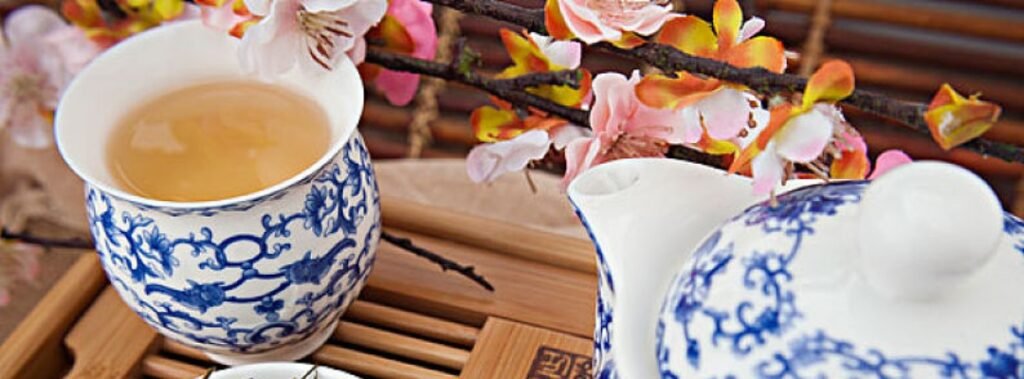In the diverse world of teas, oolong stands out for its distinctive fermentation process, which imbues it with unique flavors and health benefits. Among these benefits, oolong tea‘s potential to positively impact blood sugar and cholesterol levels is particularly compelling. This traditional Chinese tea, which occupies a middle ground between green and black tea in terms of oxidation, offers more than just a refreshing beverage—it could be a key player in your health regimen. Let’s explore how oolong tea can help lower blood sugar and cholesterol, making it a valuable ally in promoting heart health and managing diabetes.
Oolong Tea’s Bioactive Compounds
Oolong tea’s unique processing not only contributes to its rich palette of flavors but also enhances its profile of bioactive compounds. These include catechins, which are more commonly associated with green tea, as well as theaflavins and thearubigins found in black tea. This combination makes oolong tea particularly effective in offering a range of health benefits.
Impact on Blood Sugar Levels
The ability of oolong tea to influence blood sugar levels is rooted in its antioxidant content. The polyphenols in oolong tea can help increase insulin sensitivity, which allows for better glucose metabolism and control over blood sugar levels. Studies have shown that regular consumption of oolong tea can lead to lower fasting blood glucose levels and improved glucose tolerance, making it a beneficial drink for people with type 2 diabetes or those at risk of developing this condition.
Moreover, the antioxidants in oolong tea, particularly EGCG (epigallocatechin gallate), have been observed to stimulate the release of insulin, further aiding in the regulation of blood sugar. This mechanism not only helps in managing existing diabetes but also offers a preventive measure against the onset of type 2 diabetes.

Reduction in Cholesterol Levels
Oolong tea’s influence on cholesterol levels has been the subject of various research studies, with promising results. The tea’s antioxidants are thought to play a role in reducing the absorption of cholesterol in the digestive tract, which in turn helps lower overall cholesterol and particularly LDL (low-density lipoprotein) cholesterol levels, often referred to as “bad” cholesterol.
Regular consumption of oolong tea has been linked with a decrease in total cholesterol levels, contributing to a reduced risk of developing heart disease. The tea’s ability to improve the lipid profile extends beyond lowering LDL cholesterol; it also helps increase HDL (high-density lipoprotein) cholesterol levels, known as “good” cholesterol, which further enhances cardiovascular health.
How to Incorporate Oolong Tea into Your Health Regimen
To harness the health benefits of oolong tea, consider incorporating it into your daily routine. Here are some tips to get started:
Frequency : Drinking 2-3 cups of oolong tea daily can offer therapeutic benefits. Consistency is key to experiencing the tea’s full effects on blood sugar and cholesterol levels.
Quality Matters: Opt for high-quality, loose-leaf oolong tea to ensure you’re getting a product rich in bioactive compounds. The quality of tea can significantly affect its health benefits.
Brewing Technique : Proper brewing is essential to extract the maximum benefits from oolong tea. Brew with hot water (around 90°C or 194°F) for 3-5 minutes. Adjust the brewing time according to taste preference, but note that longer steeping times may release more antioxidants.
Lifestyle Integration : While oolong tea can contribute to health improvements, it should be part of a broader approach to wellness that includes a balanced diet, regular physical activity, and adequate hydration.
A Note of Caution
Although oolong tea is generally considered safe for most people, it does contain caffeine. Individuals sensitive to caffeine or with certain health conditions should monitor their intake or consult with a healthcare professional. Additionally, while oolong tea can complement diabetes and heart disease management, it should not replace prescribed medications or treatments.

Oolong tea offers a delightful convergence of flavor and health benefits, making it a valuable addition to a health-conscious lifestyle. Its potential to lower blood sugar and cholesterol levels positions it as a natural ally in the fight against diabetes and cardiovascular disease. By integrating oolong tea into your daily routine, you can enjoy not just its soothing taste but also its profound health benefits. As we continue to explore and embrace the holistic benefits of traditional teas, oolong tea stands out as a testament to the power of nature in supporting our well-being.
